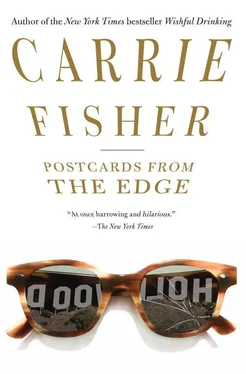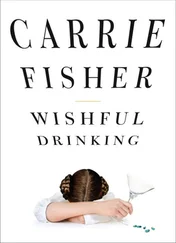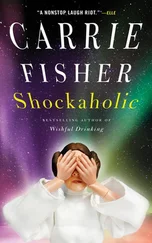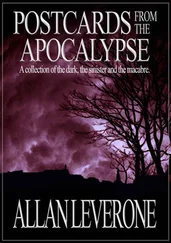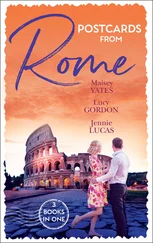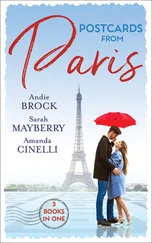While she was listening to Walter, her eyes scanned the bookshelves behind him, coming to rest on a copy of The Guinness Book of Sexual World Records. She reached over for it and browsed through it while Walter enlightened her on the history of scalp ailments. Suddenly, she interrupted him.
“Listen,” she announced. “‘Most Sexual Organs in an Insect.’ The tapeworm has thousands of penises.” Suzanne was the happiest she’d been all evening. “‘Most Perishable Sexual Organs,’” she read ominously. “Did you know that the bee penis breaks off in the other bee and he dies?”
Walter stared at her with a combination of amusement and what could have been concern. “This is weird of me, to be doing this, isn’t it?” said Suzanne, but before Walter had a chance to agree, Wallis breezed by and announced that dinner was ready. Suzanne reluctantly decided against bringing the book to the table and walked slowly with Walter to the dining room, hoping Wallis had seated her with someone good, or at least with no one bad.
She found herself sitting to the left of a short, swarthy man she recognized as the Czech director Gustav Bozena, and to the right of the guest of honor, a businessman named Fred Weaver, whose autobiography was moving up the best-seller lists fast enough to have attracted Hollywood’s attention. Fred was a thin, sixtyish man with even thinner white hair, blue eyes, a slight sunburn, and a small, almost feminine mouth. His face gave the appearance of having been sharpened especially for this party.
On Fred’s left sat Selena Warner, the aging British starlet who played Dorothea Pierce, the red-haired evil head nurse on Chestnut Lodge , a night time soap set in an insane asylum. Suzanne had been at several parties with Selena Warner—the most recent had been only three nights earlier—but, since it had never been a particular goal of hers, had never actually met her. Now, though, Selena smiled at her—or, more correctly, turned her face with the smile on it toward Suzanne—and said, “I saw you the other night, didn’t I?” Suzanne mumbled an affirmative response, but Selena’s attention had already shifted to Fred Weaver, who asked her something about acting. She answered as if she had all the important insights about the profession.
“Sir John once said to me,” she said, and Suzanne smiled and thought, I’ve waited my whole life to hear a sentence begin that way. She stared at Selena as if she was watching her on television and listened as she went on, “He said that he was sort of limited in a way himself. He showed me his hands and said he’d never done a day’s work in his life, so he couldn’t play a laborer. And he said to me that, in the same way, I could never play anything other than a beautiful woman. I don’t know if I quite believe that, but… Such a sweet man, Sir John.”
Suzanne felt she couldn’t really top the Sir John story, so she concentrated on avoiding the oysters in her oyster soup. She thought they looked like gray elephant boogers. Horrible food! Fred said something about business and Selena tilted her head and leaned in knowingly. Her lips moved over her teeth like bubbling water, and when she understood particularly well, she batted her eyelashes at him. Her face was a Richter scale registering her comprehension.
When he’d finished, Selena said, “Well, you know how actors are,” and turned her smile on Suzanne, who felt oddly flattered that Selena assumed she knew how they were. The conversation shifted, with no discernible segue, to how demeaning it was to have to depend on acting to express your creativity. Fred said that yes, he could see Selena’s point that actors had to wait to act until there was a camera or an audience, while painters—even bad ones—could just paint whenever they wanted to. Selena took out a stick of lip gloss and glooped some on her lips.
Suzanne shifted her attention to her right and, to her dismay, found herself in a conversation about film with Gustav Bozena, whose English was only marginally better than Suzanne’s Czech. She tried to ask smart questions, but she thought they just sounded pretentious. Gustav said he liked John Ford, he liked King Vidor, he liked Fellini. I can’t believe this, she thought. I’m an asshole at a party talking to a famous director about film. When she heard herself ask, “Do you believe that film is a more visual medium and that things should be described instead of dialogued?” she wanted to cut her head open and drip brains on the table. It was all she could do to keep from choking on her own social vomit.
“You do not look so American,” Gustav said. “You look European.”
“Really?” Suzanne said. “You’re crazed.”
Gustav said he came from Prague and lived in Paris, and that Suzanne didn’t look American because she looked right into people’s faces. “This Americans do not do,” Gustav said. “It is very European.”
“Really?” she said, and kept looking right into his face, as if to make sure he didn’t go back on what he’d said. She heard herself telling friends, “Gustav Bozena said I was very European.”
Across the table a rock promoter named Chris Hunt, who Suzanne thought looked like a losing Senate candidate—he reminded her of John Tunney—was telling a story about Noel Coward going backstage to meet the Beatles. According to the legend, which Suzanne recognized from Noel Coward’s memoirs, the Beatles had already left, so Coward went back to their hotel to tell them how much he’d liked the show, and then none of them came out to see him except Paul, who was very awkward. Coward had noted their rudeness in his diary.
When he finished this story, the girl next to him, Joan Lilly, a former top British model, declared, “Well, Noel Coward hardly stands the test of time.” She said it with total authority, as if she was stating an accepted political position and that anyone who thought otherwise was simply outmoded.
“In the final analysis,” said Chris Hunt, with the cavalier nonchalance you might overhear wafting out of a car as it drives slowly by, “the Beatles were just more interesting. Noel Coward,” he added dismissively, “was a wit.”
Suzanne stared at him, her eyes demanding, “Be serious. How can you make this an issue? How did we get here?” She guessed that he and Joan Lilly had never met before this evening, and now they were bonded for life in their rigid stance on Noel Coward’s pathetic inferiority to the Beatles. She wanted to say something to somebody about the absurdity of the moment they were all sharing, but conversation was now over for her. These two had given taking a position a bad name.
Somehow the topic shifted to Winston Churchill, whose wit was also belittled. An American television producer whose name Suzanne didn’t catch theorized that his reputation was based on the fact that every joke at that time was attributed to Churchill because they sounded better when told that way. “You know,” the producer said. “It’s like if you say, ‘I haven’t eaten in a week, so he bit me.’ It’s funnier if you say, ‘Churchill said it.’”
It turned out Chris Hunt was something of an expert on Churchill as well, and he rattled off several Churchill classics. Suzanne leaned over to Gustav Bozena and whispered, “It looks like one of our guests has done some reading.” Then she turned her attention back to her left.
“I honestly don’t know why people don’t like my character,” Selena was saying. “I haven’t killed anyone. My husband Charles has killed three people on the show.”
“Well,” Fred said, “I think the reason they don’t like Dorothea, or rather, why Dorothea fascinates them, is because she’s deceptive.”
“Oh?” said Selena. “That’s very interesting. I’ve never thought of that. That’s very intriguing.”
Читать дальше
